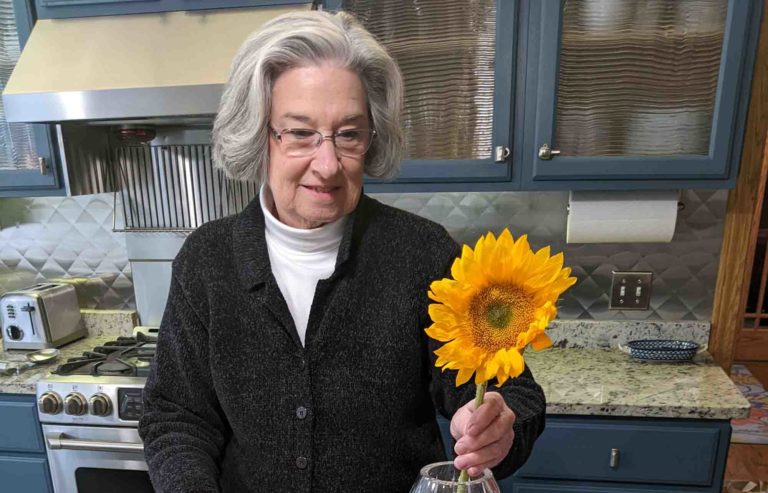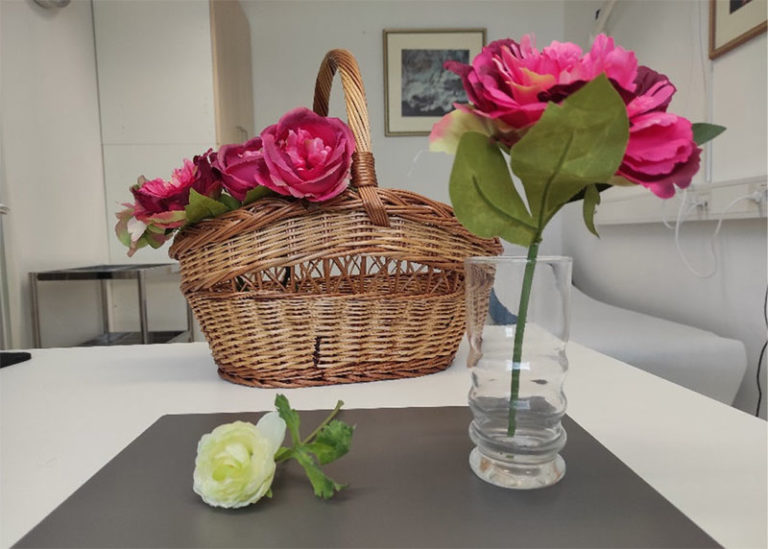Montessori Practical Life Activities for Individuals with Dementia
Adapted from Getting Started with Montessori Volume 1 by Brush & Norris ((c) 2017 Brush Development Company)
Dr. Montessori developed practical life activities to help children develop coordination, order, independence, and concentration. By developing those qualities, the child is able to get the most out of the learning experience. There are four main areas of practical life in the classroom: care of self, care of the environment, control of movement, and grace and courtesy. In Montessori for Aging and Dementia, individuals engage in practical life activities in the care environment, the environment is calmer and elders have a purpose that guides each day.
Practical life roles and activities give individuals an opportunity to:
- Care for the Environment by cleaning, washing, dusting, tidying, serving, folding, weeding, raking, planting, etc.
- Care for Oneself by bathing and dressing in a positive way that increases self-respect and dignity.
- Care for Others within the family or community. Individuals have an opportunity to help others who may not be able to complete a task on their own due to cognitive, physical, or sensory impairment.
- Be Hospitable and participate in social interactions. Entertaining guests, pouring tea for a friend, and holding celebrations are all opportunities to maintain important life roles.
Practical life activities respond to individual’s need for:
Freedom of Movement. Older adults and individuals living with dementia benefit from freedom of movement and should not be expected to sit still all day. Rather than restricting movement, provide opportunities for walking and exercise.
Order. Order brings a sense of predictability and security. People with dementia experience a reduction in the ability to process stimulation. As a result, an environment with significant amounts of clutter can be over-stimulating and create difficulties in locating needed items, such as personal possessions, grooming items or pieces of clothing, which can lead to frustration and anxiety. Try placing commonly used items in clearly visible containers with prominently displayed labels. Clean up any clutter, and organize the environment by giving everything a home.
Manipulation. It is natural to touch, hold, and use an object in some way. It is important to give people opportunities throughout the day to feel and experience the environment around them. It is through experience that we learn and create memories. Make tools needed for activity completion and other interesting materials accessible in the immediate environment.
Work. When we meet someone new, we often ask, “What do you do?” Many of us describe ourselves by the work we do whether that may be working as a professional outside of the home or as a homemaker or parent or care partner. Meaningful work gives our life purpose.
Activity. We all like to stay busy doing things we enjoy. Montessori activities that are accessible in the environment enable individuals to choose things to do whenever they want. Activity stimulates the mind and the body and reduces feelings of restlessness, depression or boredom.
Repetition. We learn best through practice or repetition. By doing something over and over again, the person improves and experiences the joy of increased control and understanding of one’s world. Always provide materials that are easily accessible and allowed to be used over and over again.
Orientation. Individuals have an internal need to orient themselves in new situations and like to know where to go and how to get back. Individuals living with dementia have impaired orientation skills and require additional cues in the environment to provide guidance and help them to be independent.
Montessori for Aging and Dementia is a philosophy of care which focuses on engaging the older adult in an environment that is adapted to support memory loss and sensory impairment and facilitate independence. As a result, older adults are empowered to care for themselves and others, make contributions to their community, and engage in meaningful activities.





